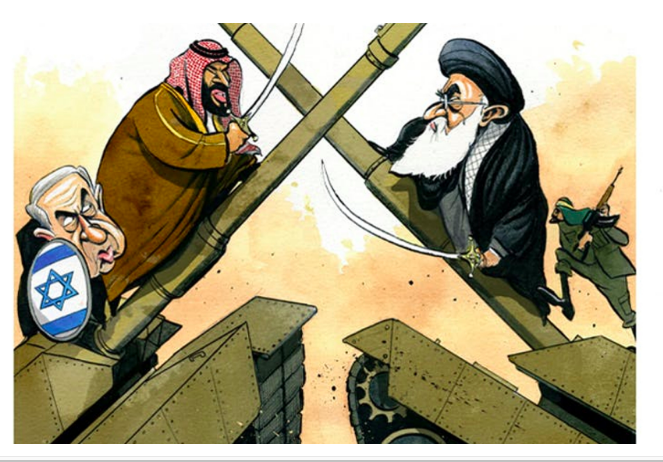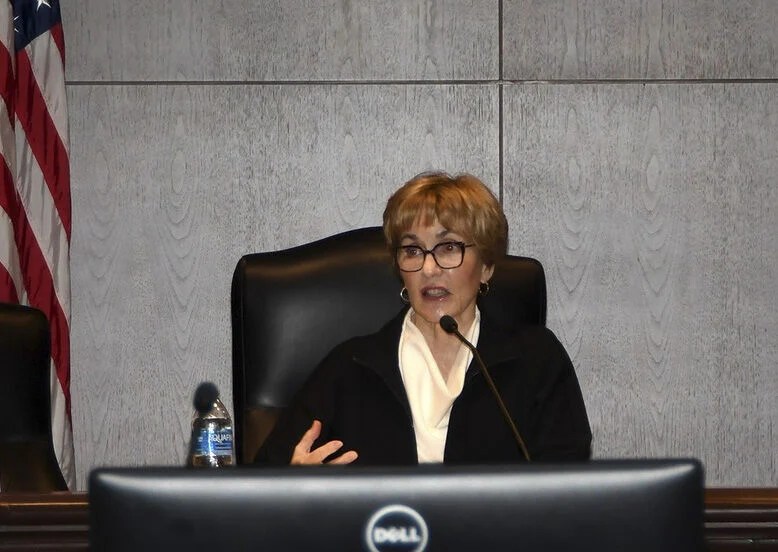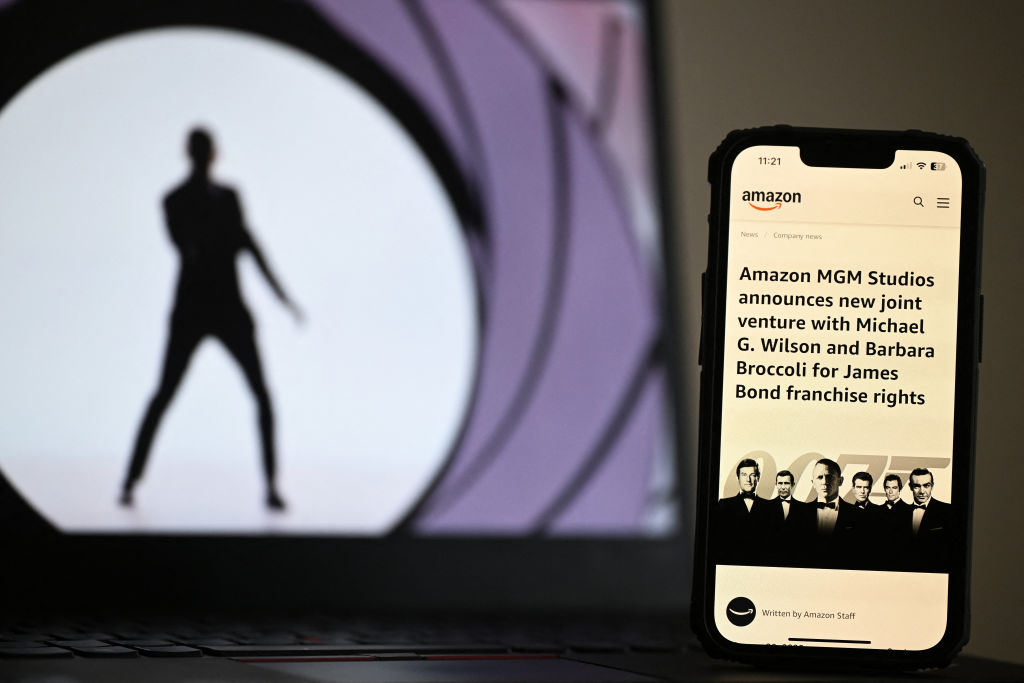The Israeli-Saudi peace deal is, to coin a phrase, oven-ready, a source close to the negotiations told me this week. After many months of covert meetings, the detail has been agreed and the Israelis are ready to commit. All that’s needed is for the Saudis to sign on the dotted line. This means that an alliance could be sealed within six months.
Of all the Arab-Israeli peace agreements, a Saudi deal would be the most significant. The Gulf kingdom is a huge country that comes close to bordering Israel, and, as such, is of great strategic weight. It is the largest economy in the Middle East. And as the custodian of Islam’s two holiest sites — Mecca and Medina — it is a serious contender for the title of leader of the Muslim world, and the main counterweight to Iran.
According to insiders, the Saudis have been considering gift-wrapping the deal for the new US president. But it will come with strings attached. For one thing, Riyadh will want a seat at the Iranian decision-making table, demanding that its interests are respected in any future nuclear agreement. Biden’s almost religious zeal for a new Iran deal is causing sleepless nights in more places than Jerusalem.
For another, there would have to be arms sales. The Saudis will not countenance anything less than the F35 stealth jets that were offered to the Emiratis. And then there is the issue of legal immunity for Saudi figures who have not been, shall we say, whiter than white.
The 35-year-old crown prince, Mohammed bin Salman, or ‘MbS’ as he is known, is a case in point. Since he rose to power in 2017, he has cemented his reputation as a ruthless leader. The Ritz-Carlton purges — so called because up to 500 rivals were detained in the hotel after he came to power — made headlines around the world. That turmoil belongs to the past, but politically-motivated arrests are still going on in the absolutist desert kingdom. At least one American citizen remains in a Saudi prison. And then there was the murder and dismemberment of dissident journalist Jamal Khashoggi at the Saudi consulate in Istanbul, not to mention the brutal war in Yemen.
All of this has placed MbS at risk of legal action should he set foot in the United States. A peace deal with Israel would go a long way towards sanitizing his image and attracting inward investment, rebranding the Wahhabi kingdom as a forward looking, liberal Muslim state that is very much open for business. After all, the only stable countries in the Middle East are the ones with relations with the Jewish state.
The PR campaign has started already. Last week, the Future Investment Initiative, MbS’s brainchild, took place in Riyadh’s luxurious King Abdulaziz conference center, attracting figures including the Italian prime minister, Matteo Renzi, and Britain’s trade minister Lord Grimstone of Boscobel. The drive for legitimacy sought to build on projects like the regeneration of the city of Neom, which is poised to become a $500 billion hi-tech city without cars or roads. The dismembering of Khashoggi, which caused many delegates to pull out of the last summit in 2018, was put firmly in the past.
If it wasn’t for the constraining hand of the crown prince’s father, the octogenarian King Salman, the deal would be done by now, negotiators told me. In today’s Middle East, the only leaders who agonize over the Palestinian cause are those in Jerusalem and Ramallah. But the elderly king, who has long spoken loudly on the issue, is proving slow to adapt, and MbS cannot pull rank.
There can be no denying that a deal makes hard geopolitical sense. The more extensive the alliance against Tehran, the more effectively the meddling theocracy could be contained — and the more pressure could be exerted on Washington as it flirts with a new nuclear deal. Israeli analysts told me that 80 percent of the threats faced by the Jewish state emanate from Iran, which is building new threats in Yemen as I write. There is an urgent need for strength in numbers.
The Saudis may take some succor from the Emiratis, who led the way in the Gulf by signing a deal last September. Their experience showed that there was no big bad wolf hiding in the shadow of normalization. But that doesn’t allay all Saudi concerns. From their point of view, there is one particular drawback: branding.
In the desert kingdom’s national security calculations, its reputation as the world’s leading Muslim country is of great importance. Both Iran and Turkey are challenging for this crown. Their attack lines tend to focus on Saudi Arabia’s behavior as custodian of Mecca and Medina. A deal with Israel could offer Saudi enemies an open goal for propagandists — ‘Jews will visit the holy sites!’ — playing badly with Muslims stretching as far as Malaysia and Indonesia, and weakening Riyadh’s hand across the region.
Domestic Saudi opinion polls reveal that Iran, not Israel, is now seen as the number one threat to the kingdom. But the Saudi public remains far from fond of the Jewish state. Polling data is extremely mixed, but some studies have suggested that up to 80 percent would be against full normalization. Attitudes have been softening since the Emiratis made peace, and Riyadh is working to improve this. But decades of anti-Israel brainwashing carried out by Arab rulers is not easily undone. If an agreement is made, it would be a deal of the elites.
Then there’s the new man in the Oval Office. Israeli negotiators are troubled by the question of whether Biden will revert to the discredited Kerry doctrine of no peace without Palestinian peace. That would mean instant game over. From the Saudi point of view, there are concerns that without Trump at the helm, the Americans may be more grudging with their sweeteners. Ever the dealmaker, Trump knew what it took to get these things over the line, whether it was taking Sudan off the terror list or recognizing Moroccan sovereignty over the Western Sahara. But the Biden administration will look far more carefully at human rights. The Saudis may be asked to release some prisoners, or curtail their military operations in Yemen, before a deal gets Washington’s blessing.
Some experts believe that the compromise will come in the form of incremental normalization. Dr Yoel Guzansky, who coordinated Israel’s work on Iran and the Gulf under three prime ministers, is one of these.
‘I’m sure the Saudi agreement will be different from the others,’ the senior research fellow at the Institute for National Security Studies told me. ‘There might not be embassies opening right away. Maybe there would be an Israeli interest office outside Riyadh to start with. Maybe there would be a declaration between foreign ministers in Washington, rather than a full-scope peace agreement like with the UAE.’
Negotiators have told me that there are still more deals in the pipeline. But not many. Mauritania, for example, is a country to watch. No player on the list, however, would have anywhere near the once-in-a-generation impact of Saudi Arabia. Which brings us to the foremost question that hangs over the Middle East today: will Biden swing behind a new approach that is working, or will he cleave to the failed doctrines of the past?
This article was originally published on The Spectator’s UK website.

























